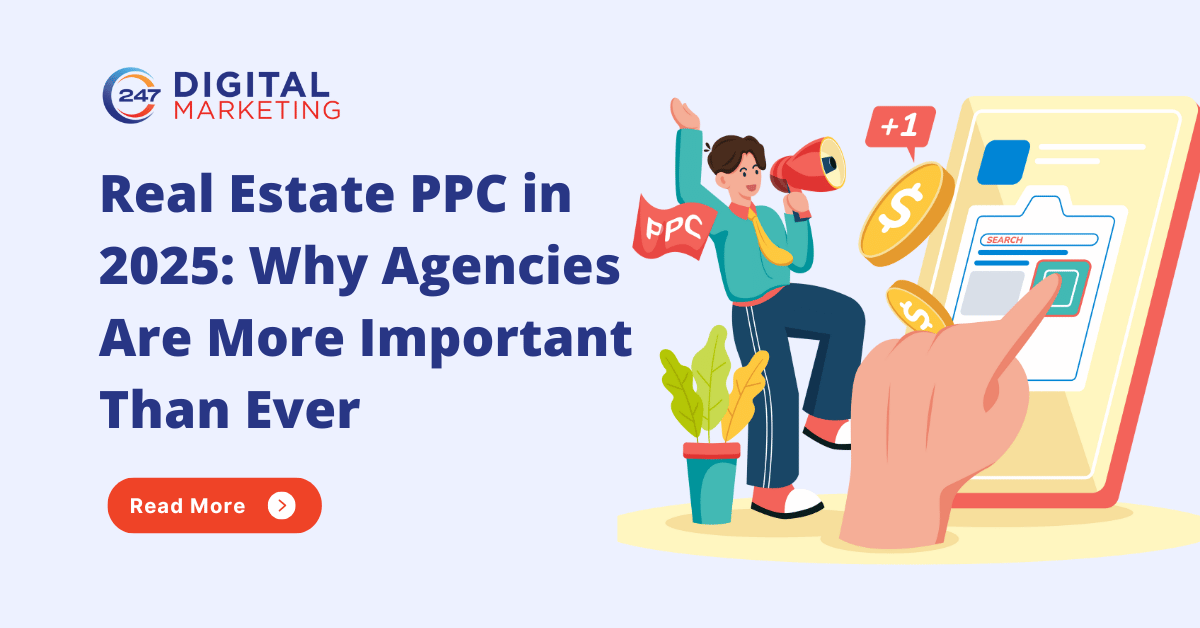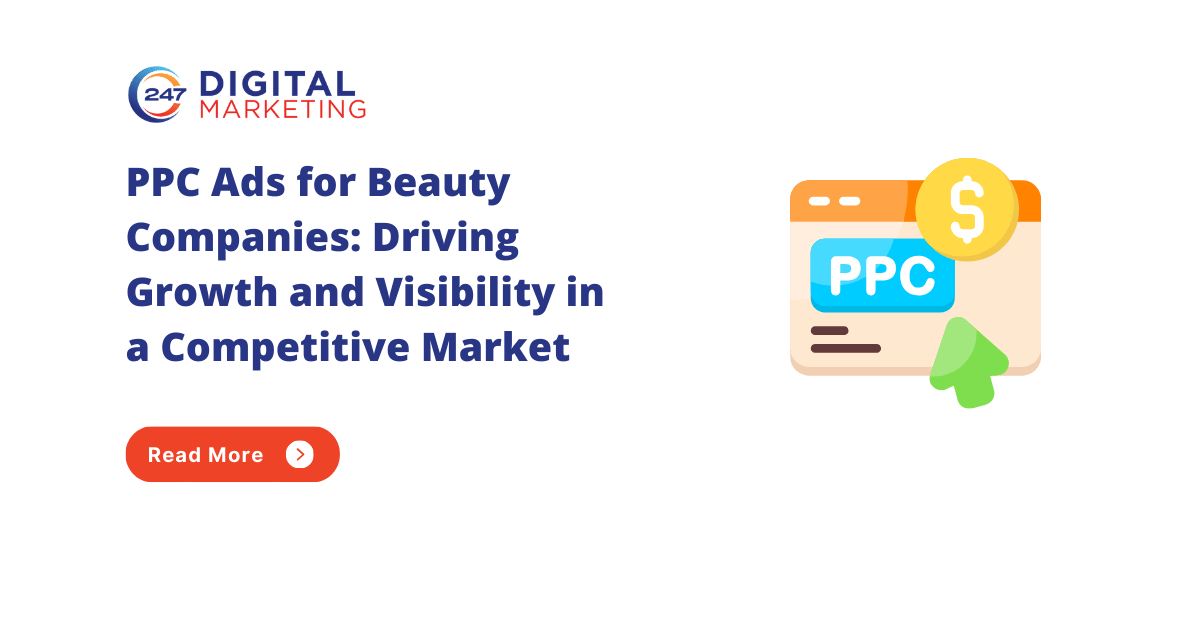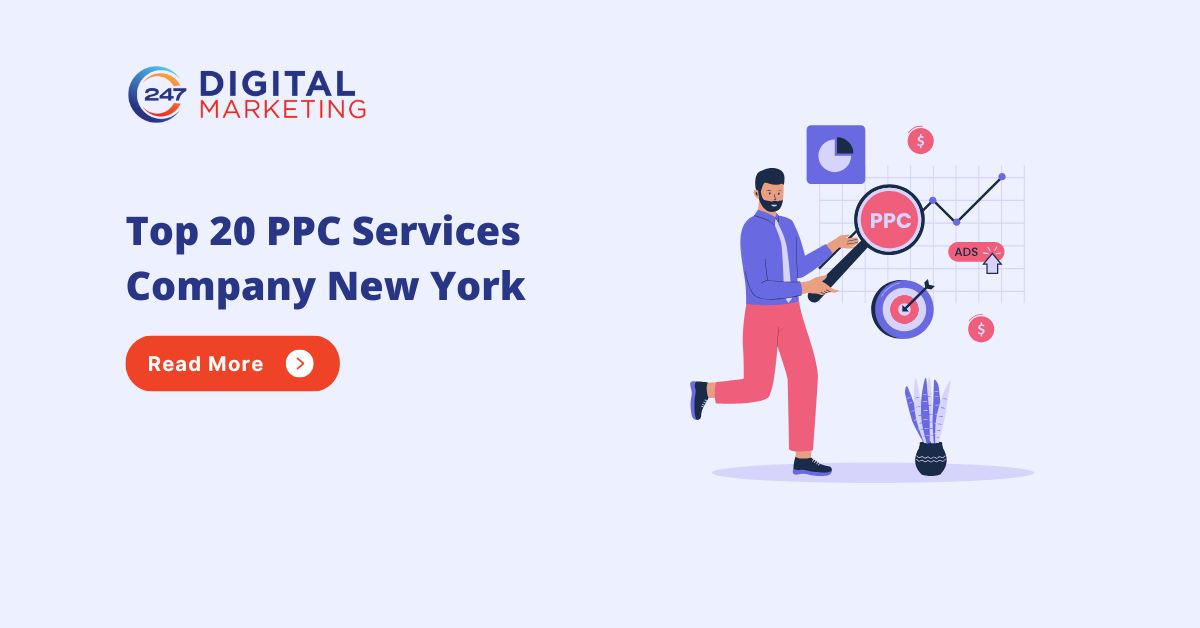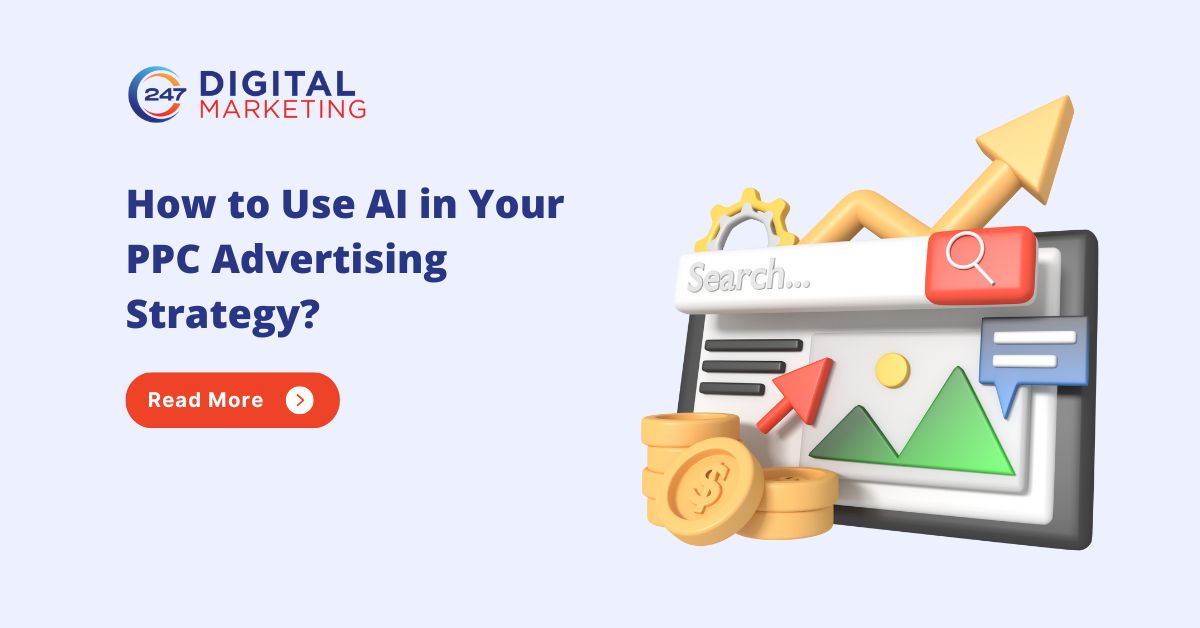Real Estate PPC in 2025: Why Agencies Are More Important Than Ever

If paid ads felt tricky a few years ago, 2025 upped the difficulty level. Buyers are discovering homes through AI‑generated summaries at the top of search, swiping through short videos on their phones, and bouncing between platforms in seconds. The winners aren’t the loudest advertisers, they’re the ones with a tightly orchestrated, data‑driven paid strategy. That’s exactly where a specialist partner earns its keep.
Below, we’ll unpack how PPC has evolved this year, why agency support is no longer optional, how SMM For Real Estate supercharges your ad dollars, which KPIs matter, and what all of this means for your growth in the years ahead.
What changed in 2025: PPC is now intent + experience
AI reshaped the search page. Google’s AI Overviews (the evolution of SGE) often appear above traditional results, summarizing answers before a user even clicks. Placester’s 2025 trend reports urge teams to optimize for “answer engines” clear FAQs, structured content, and landing pages that AI can easily parse because a growing share of discovery happens without a traditional click. Pair that with Placester’s guidance that more than 60% of real estate searches start on mobile, and you see why ad creative and landing experiences must be concise, scannable, and lightning‑fast on phones (Placester, 2025 trends & strategies).
Video is the new first impression. Resimpli’s 2025 statistics highlight an old truth with new urgency: 96% of buyers start online, and listings with video generate 403% more inquiries. That has consequences for PPC: ads that drive to video‑forward pages (reels, short walkthroughs, 3D/AR) convert better than static pages because they match buyer behavior (Resimpli, 2025).
Budgets matured, expectations did too. The Digital Agency Network’s industry roll‑ups show organic + paid search account for the majority of traffic, with organic converting around 3.2% versus 1.5% for paid and PPC CPCs typically ranging $0.50–$4.00 depending on intent and market. Translation: clicks are pricier, so precision matters; and your paid strategy must complement (not cannibalize) what already works in search and social (Digital Agency Network, real estate stats).
Why a PPC agency matters more than ever
1) Audience design that mirrors how people actually shop.
A seasoned team doesn’t just bid on “homes for sale.” They build layered intent audiences: searchers in specific school zones, viewers who watched 50%+ of a tour, site visitors who viewed three listings, and lookalikes of past closings. That sequencing lets you show the next best message on the next platform rather than blasting the same ad everywhere (Placester, 2025 strategies; Digital Agency Network stats).
2) Creative built for the feed and the SERP.
Short‑form video isn’t a trend; it’s the default. Agencies pair high‑intent search ads with thumb‑stopping Real Estate Social Media Content (reels, carousels, stories) so prospects meet your brand before they ever type your name. When they do search, your ads land on mobile‑first pages with fast video, clear CTAs, and one‑tap actions, exactly the experience Placester recommends to lift conversions on small screens (Placester, 2025; Resimpli, 2025).
3) Budget efficiency in pricier auctions.
In markets where CPC pushes past a few dollars, the right partner earns back margin with smarter match types, negative keyword hygiene, geo‑tight campaigns, and remarketing that converts warm interest at a discount. Digital Agency Network’s benchmarks underscore why this matters: you’re aiming to lower blended CPL while raising booked appointments, not just reducing CPC in isolation.
4) AI‑aware landing and measurement.
Agencies structure content and metadata so AI systems and users understand your value instantly (FAQs, pricing ranges, neighborhood context, schema). They also instrument the journey calls, forms, WhatsApp, “save listing,” tour requests because in 2025, not every win looks like a click (Placester, 2025; Resimpli, 2025).
PPC + SMM: the flywheel that compounds results
Think of search ads as harvesting existing demand and socializing as creating it. The two are stronger together.
- Prime the market with social video. Digital Agency Network notes that pairing PPC with persistent social presence lifts engagement and downstream conversions. Neighborhood explainers, market “myth vs fact,” and 30‑second highlights of new inventory warm up audiences so your search ads hit familiar eyes (Digital Agency Network).
- Retarget with relevance. Someone watched your riverfront condo reel to the end? Serve them a lead‑ad for an open‑house slot. Has anyone read your Q2 market snapshot? Show a seller valuation offer. This micro‑segmentation is where SMM For Real Estate pays for itself (Resimpli, 2025; Digital Agency Network).
- Let your website carry more weight. Placester’s 2025 playbooks push mobile speed, interactive elements (tours, maps, school info), and AI‑friendly structure. When your site has a great answer, both paid and organic perform better and even AI Overviews are more likely to cite your content (Placester, 2025).
KPIs that prove agency value
A strong partner won’t email you a CPC chart and call it a day. Expect a dashboard tied to business outcomes, backed by benchmarks from Resimpli, Placester, and Digital Agency Network:
- Cost per qualified lead (CPL) by intent (buyer vs seller) and by micro‑market.
- Cost per booked appointment (showings, listing valuations). That’s the gold KPI.
- Lead‑to‑appointment and appointment‑to‑contract rates by channel.
- Search impression share and absolute top‑of‑page rate on money terms.
- Assisted conversions showing how social touches influence paid search outcomes.
- Creative fatigue metrics (declining CTR, rising frequency) prompting new Real Estate Social Media Content.
- On‑site engagement that tracks with Resimpli’s engagement signals: video plays, 3D tour views (which can be 87% higher than standard listings), and call button taps (Resimpli, 2025).
When you see CPL dropping, appointment rates rising, and a healthy share of assisted conversions from social to search, you know the system is compounding.
A practical 90‑day roadmap
Weeks 1–2: Fix the foundations.
Audit tracking (calls, forms, chats), clean up Google Business Profile, compress images, and get page speed under two seconds on mobile. Map your top neighborhoods and buyer/seller intents (Placester, 2025).
Weeks 3–6: Launch creative that matches intent.
Spin up search campaigns around specific needs New York,””homes with study,” and pair them with social video that creates demand in those same micro‑areas. Add remarketing that nudges action: “Book a tour,” “Get your valuation,” “See price drops” (Digital Agency Network; Resimpli).
Weeks 7–12: Optimize and scale.
Shift budget to the best‑performing geos, refresh short‑form creative before fatigue, and expand to the formats your buyers engage with most video‑led landing pages, 3D/AR embeds, and succinct Q&A sections that play nicely with AI Overviews (Placester, 2025; Resimpli, 2025).
Don’t forget the human edge
AI can help draft copy, cluster keywords, and predict likely movers. But the content that truly separates you still sounds like you: why one side of the block is quieter after 6 p.m., which towers have better maintenance, and how a new transit line will change commute times next year. The agency’s job is to systematize distribution and optimization so your local voice shows up more often, in more places, at the exact right moment.
The road ahead
Expect search to keep blending with AI answers, social to get even more video‑heavy, and privacy changes to make first‑party data priceless. Agencies will keep earning their seat by stitching those realities together: performance media that respects budgets, sites that answer quickly on mobile, and stories that build trust across every surface your customer touches.
If you’re ready to turn complexity into market share, partner with the Best Real Estate PPC Agency you can find one that treats PPC, SEO, and social as one system. In 2025 and beyond, that’s how you win the moments that lead to contracts.
Mitesh Patel is the co-founder of 247 Digital Marketing, LawFirm Marketing and a columnist. He helps companies like Emerson and other top Fortune 500 compnies to grow their revenue.





